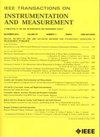Underwater Image Enhancement via Adaptive Bi-Level Color-Based Adjustment
IF 5.6
2区 工程技术
Q1 ENGINEERING, ELECTRICAL & ELECTRONIC
IEEE Transactions on Instrumentation and Measurement
Pub Date : 2025-03-17
DOI:10.1109/TIM.2025.3551931
引用次数: 0
Abstract
Underwater images often exhibit severe color distortions and reduced contrast due to light absorption and scattering, presenting substantial challenges for image enhancement techniques. To address these challenges, this article presents BCTA-Net, an adaptive bi-level color-based network specifically engineered to enhance the quality of underwater images by addressing distortions in dynamic and complex environments. The network integrates content-aware global and local restoration strategies. On a local scale, a color-aware attention mechanism is proposed which employs color histograms to adaptively correct nonuniform color distortions and enhance local color fidelity. In addition, a triple attention (TA) module restores spatially varying local details in a content-aware manner, improving clarity and texture precision of enhancement. These elements are combined into a dual-branch architecture aimed at reducing local contrast, color fidelity, and detail precision issues. On a global scale, contrastive learning focused on background lightness corrects color distortions due to uneven illumination. The integration of these components results in a lightweight, dynamic global-local model with robust generalization capabilities across various underwater scenarios, as demonstrated by comprehensive experiments that show significant performance improvements over existing methods.求助全文
约1分钟内获得全文
求助全文
来源期刊

IEEE Transactions on Instrumentation and Measurement
工程技术-工程:电子与电气
CiteScore
9.00
自引率
23.20%
发文量
1294
审稿时长
3.9 months
期刊介绍:
Papers are sought that address innovative solutions to the development and use of electrical and electronic instruments and equipment to measure, monitor and/or record physical phenomena for the purpose of advancing measurement science, methods, functionality and applications. The scope of these papers may encompass: (1) theory, methodology, and practice of measurement; (2) design, development and evaluation of instrumentation and measurement systems and components used in generating, acquiring, conditioning and processing signals; (3) analysis, representation, display, and preservation of the information obtained from a set of measurements; and (4) scientific and technical support to establishment and maintenance of technical standards in the field of Instrumentation and Measurement.
 求助内容:
求助内容: 应助结果提醒方式:
应助结果提醒方式:


